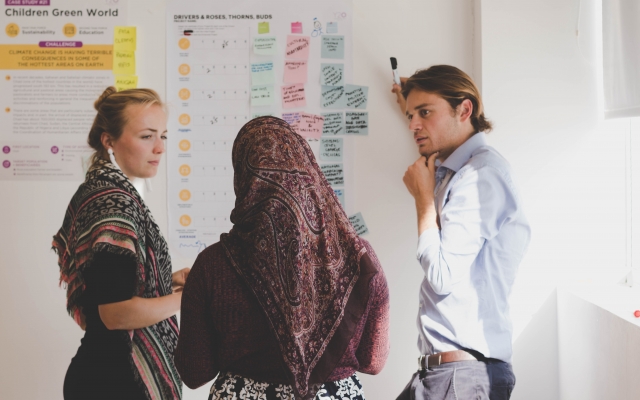
Darcy Small, Global Voices Delegate and UNSW Co-op Scholar reflects on the Y20 in Argentina and explains the vital need for young people to have a seat at the global decision-making table.

It doesn’t make sense. At high-level political forums, young people get almost no say. Yet, this is where the big decisions are made, and when it comes to bearing the long-term consequences of these big decisions, it’s all on us.
This nonsense hadn’t crossed my mind till I was selected, alongside my new friend Jananie Janarthana, who studies law and works at the Community and Public Sector Union, as an Australian delegate to the Y20 in Argentina, the youth engagement group for the G20. This crazy intense week, spent discussing, arguing, working and learning with super inspiring young people, showed me that there’s definitely a role for us to play.
Typically, the Y20 has one outcome: a policy paper; its recommendations somewhat diluted by consensus vote, that is quietly handed over as ‘the voice of the youth’ to global leaders. Here’s what we reckon, take it or leave it, we say.
Not this year.
Disruption is a word worn out by wannabe entrepreneurs, but it describes the approach of this year’s Y20 Chairs/legends, Agustín A. Batto Carol and Eliana Vidal, Buenos Aires locals and head of EIDOS and innovation consultant at AIESEC respectively. They broke the format, deciding to focus on doers. Change can come from the top-down, but it often comes from the bottom-up. Where better to showcase and coordinate this than at the Y20?
We still wrote a policy paper, but this was capped at two pages and the extra days were dedicated to building a social innovation warehouse, understanding how to do global advocacy and learning for impact.
I learnt from Ilona Dougherty, from the Youth & Innovation Project at the University of Waterloo in Canada, how neuroscience shows that between the age of 15 and 25, our brains are actually ‘wired for innovation’.
I learnt from Emma Clemens, Dutch Youth Representative to the UN for Sustainable Development, about the power of changing your surroundings, rather than flat out aiming to change the world.
I learnt from Brett Schilke, Director of Impact at Singularity University, that in this technological era, which has effectively accelerated from cavemen to cappuccinos in 100 years, young people are more knowledgeable than our elders about many things and we have huge opportunities to take on leadership roles.
Everyone taught me that you can be at the top of your game and still be down to earth.
The spread of participants was incredible. There were social enterprise and NGO founders, lawyers, doctors, consultants, academics, World Bank, WTO, OECD, ILO, UNDP, UNESCO and even a nerdy guy who studies solar panels!
Diversity is key, but even this level of diversity wasn’t enough. We discussed climate change, yet many of the countries hardest hit by climate change weren’t represented. We discussed education for all, yet nearly everyone there had had the privilege of access to tertiary education. Stakeholders who live the context and the consequences are our true experts; and having those people in the decision-making room will lead to better decisions.
Next year, the Y20 will be held in Japan. I hope they follow Argentina’s lead and keep innovating. I hope there’s a truly diverse representation of all young people. I hope the G20 looks at all the cool stuff young people are doing around the world and give us a bigger say in the future. I hope there’s lots of sushi and karaoke, because this year there was plenty of great wine and tango.
Thanks to the UNSW Co-op Program and Global Voices for the incredible experience.
